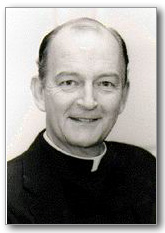The Secularism of the West
- RICHARD JOHN NEUHAUS
We have all heard it said that the war on terrorism pits liberal democracy against religious fanaticism. There is a measure of truth in that. Others say the conflict is between a secular understanding of society and a society defined by religiously based morality. That, I suggest, is both untrue and dangerous.
 |
It is untrue because it ignores how, as a matter of historical fact, liberal democracy came to be. It is dangerous because it pits liberal democracy against a world that is, as a matter of present fact, overwhelmingly religious, and becoming more so.
Taking the second fact first, the extraordinary thing happening on planet
Earth today is the de-secularization of world history. This is not how things
were supposed to have turned out. Since the rise of modernity and up until very
recently, most intellectuals assumed that there is a necessaryconnection between
modernity and secularization. As people become more modern, more educated, more
enlightened, religion will either disappear or will be confined to the purely
private sphere of life. In this way of telling the story, religion becomes, in
the words of philosopher William James, "what a man does with his solitude."
It is no longer a public factor that "interferes" with the way we order
our life together through culture, laws, and politics. That way of telling the
story dominates our textbooks from grade school through graduate school.
Until
recently, sociologists of religion were puzzled by what they called "American
exceptionalism." The United States is the most modern nation in the world,
yet it is also strongly religious. It violates the rule that modernity
and modernity's political expression in liberal democracy goes hand in
hand with secularization. Some of those same sociologists have now decided that
the ule was wrong. For instance, Peter Berger of Boston University now speaks
of the "exceptionalism" of Western Europe, for Western Europe (and North
American intellectuals who take their cues from Europe) sticks out as the secular
exception in a world that is becoming ever more religious.
Since
Sept. 11, we are newly aware of the more than one billion Muslims in the world
who, sometimes with suicidal zeal, reject what they view as the secularism of
the West. Given a choice between Islam and democratic modernity, they will choose
Islam. If the choice is between religion and liberal democracy, the war on terrorism
will go on and on with no end in sight. The same phenomenon is evident in India
with newly politicized forms of Hinduism. But the most overlooked part of this
global picture is the explosion of Christianity, especially in Latin America,
Africa, and Asia. This is vividly desribed by Philip Jenkins in his new book
The Next Christendom. Most of us think of Christianity as a European import,
but the rapidly growing Christian movement, which now has 2.5-billion adherents,
is mainly in the Southern hemisphere. Within a few years, three-quarters of the
Christians in the world will be "people of colour." They are no more
likely than Muslims to embrace liberal democracy if it comes at the price of accepting
secularism.
Suddenly, Western Europe looks like an island of secularism in a sea of global religion. The de-secularizing of world history is an aspect of globalization generally neglected in current discussions.
The great question is whether
modernity and liberal democracy can be secured in ways compatible with vibrant
religious faith. That question is answered by remembering how, in historical fact,
these achievements were secured. While modenity and democracy sometimes met with
ecclesiastical resistance, they were generally inspired by religious conviction.
From Magna Carta in 1215 through the Cromwellian revolution to the Declaration
of Independence and its appeal to "Nature and Nature's God," the champions
of freedom have invoked transcendent truth in the vindication of their cause.
Michael Novak's recent book, On Two Wings, documents the deep religious
convictions that shaped the thinking of the American founders in launching the
world's oldest and most influential experiment in liberal democracy. It is a way
of thinking that has been largely omitted from our bowdlerized textbook tellings
of the story of democracy. Accurately told, it becomes evident that religion is
not the enemy but the foundation of modernity and freedom. There is probably not,
for instance, a more comprehensive contemporary argument for a democratic, free,
and just society than Pope John Paul II's 1991 encyclical, entesimus Annus
("A Hundred Years," marking the centenary of modern Catholic social
teaching.)
Can Islam produce a comparable religious argument in support of modernity and democracy? The answer is that we do not know. We must hope and pray that it can and will. But this we do know: If it is true, as some still say, that liberal democracy is inseparable from secularism, liberal democracy has a very dim future in a world of resurgent religion.
![]()
 This is Meaghen Gonzalez, Editor of CERC. I hope you appreciated this piece. We curate these articles especially for believers like you.
This is Meaghen Gonzalez, Editor of CERC. I hope you appreciated this piece. We curate these articles especially for believers like you.
Please show your appreciation by making a $3 donation. CERC is entirely reader supported.

Acknowledgement
Richard John Neuhaus, "The Secularism of the West." National Post, (Canada) 11 October, 2002.
Reprinted with permission of the National Post. This is the last of a four-part series featuring speakers at the McGill University nconference on Pluralism, Religion and Public Policy.
The Author




